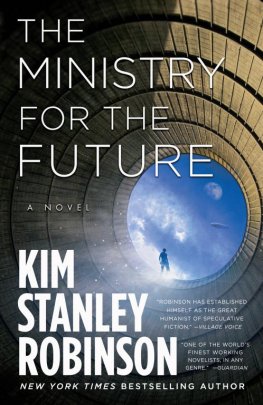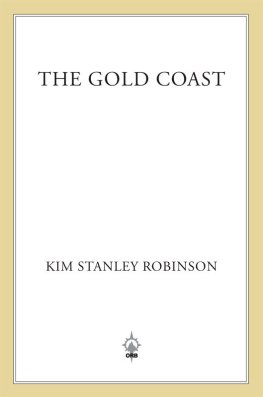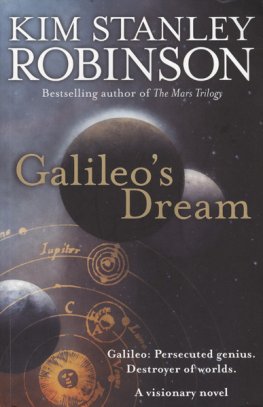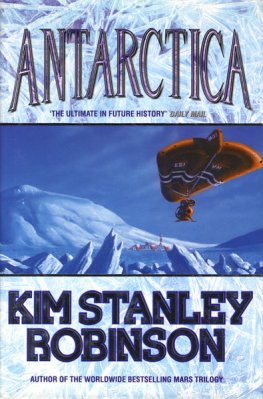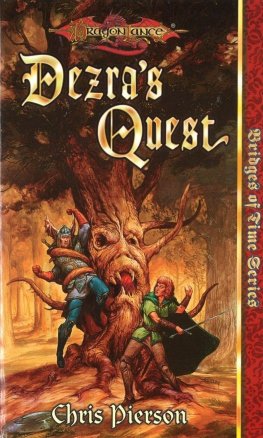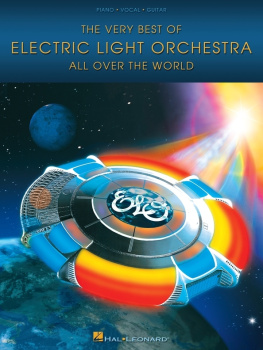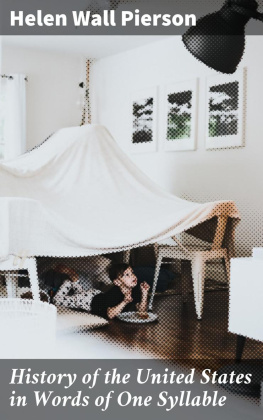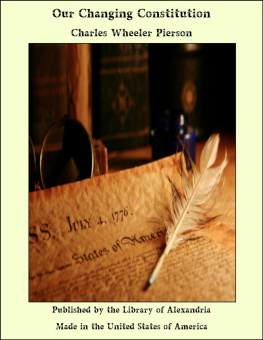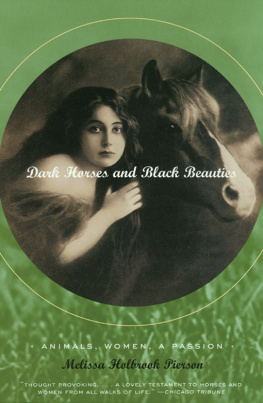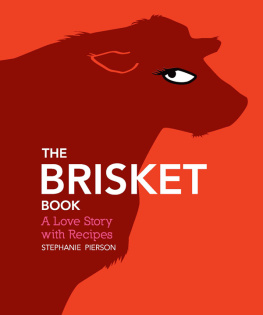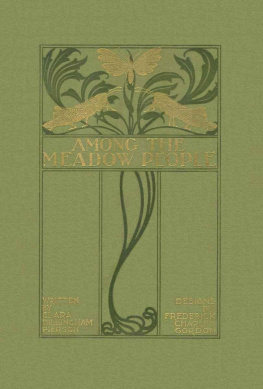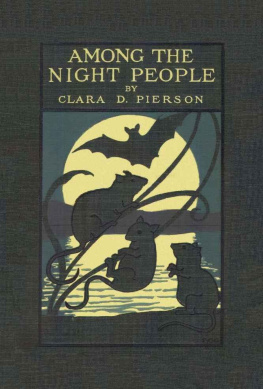Kim Robinson - In Pierson’s Orchestra
Here you can read online Kim Robinson - In Pierson’s Orchestra full text of the book (entire story) in english for free. Download pdf and epub, get meaning, cover and reviews about this ebook. genre: Science fiction. Description of the work, (preface) as well as reviews are available. Best literature library LitArk.com created for fans of good reading and offers a wide selection of genres:
Romance novel
Science fiction
Adventure
Detective
Science
History
Home and family
Prose
Art
Politics
Computer
Non-fiction
Religion
Business
Children
Humor
Choose a favorite category and find really read worthwhile books. Enjoy immersion in the world of imagination, feel the emotions of the characters or learn something new for yourself, make an fascinating discovery.

- Book:In Pierson’s Orchestra
- Author:
- Genre:
- Rating:3 / 5
- Favourites:Add to favourites
- Your mark:
- 60
- 1
- 2
- 3
- 4
- 5
In Pierson’s Orchestra: summary, description and annotation
We offer to read an annotation, description, summary or preface (depends on what the author of the book "In Pierson’s Orchestra" wrote himself). If you haven't found the necessary information about the book — write in the comments, we will try to find it.
In Pierson’s Orchestra — read online for free the complete book (whole text) full work
Below is the text of the book, divided by pages. System saving the place of the last page read, allows you to conveniently read the book "In Pierson’s Orchestra" online for free, without having to search again every time where you left off. Put a bookmark, and you can go to the page where you finished reading at any time.
Font size:
Interval:
Bookmark:
The dead shall live, the living die,
and Music shall untune the sky.
Hallway to hallway to hallway I flit, like a bat in a mine. The lights aredimmed and the halls are empty, eerie gray slots. I cast long shadows from lowlight to light as I move along, next to the wall. I can feel my upper armsslide wetly against my ribs, and my hearts allegro thumping. A voice withinme sneers: Time for your diamond, junkie.
Dead sober will I see him, I promise myself again. My hand shakes and I put itback in my pocket. Familiar halls now, and I slow down as if the air isgetting thicker; still in color-blind greys, and the air is perhaps filledwith dust, or smoke. It is past time for my next crystal. I have not slept forfive days, I am continuing on the drive of my decision.
Home. VANCOUVER CONSERVATORY, the tall door announces. I turn the knob, givethe door a push to get it started. It opens. I slip through, silently crossthe entrance floor. Piersons hologramic statue stares down at me, a shortruby-red figure transparent in the dim light. I circle him warily, alive tohis presence in the shadows between me and the ceiling. Hallways, again; thenanother door, the door: sanctum sanctorum. You remember the old animated filmFantasia? Suddenly I am Mickey Mouse, in Dukas The Sorcerers Apprentice,about to interrupt the sorcerer over his cauldron. A deep bell clangs from themain hall and I jump. Midnight: time for the breaking of vows. I knock on thedoor, a mistake; I have the privilege of entering without knocking; but no, Ihave lost all that, I have revoked all that. An indistinct shout arrives frominside.
I push the door open and a slice of white light cuts into the hallway. In Igo, blinking.
The Master is under the orchestra, on his back, tapping away cautiously at thedent in the tuba tubing. The dent occurred at the end of the last grand tour,when one of the workmen helping to move it onto a rollcart tripped and kickedthe tuba with his steel-tipped boot.
The Master looks up, white eyebrows rising like a birds crest. Eric, hesays mildly, why did you knock?
Master, I say shakily, my resolve still firm, I can no longer be yourapprentice.
Watch that sink in, like a hot poker in snow. He edges out from under theorchestra, stands up; all slowly, so slowly. He is old. Why is this, Eric?
I swallow. I have a lie all prepared, I have considered it for hours andhours; it is absurd, impossible. Suddenly I decide to tell him the truth. Iam addicted to nepanathol.
Right before my eyes his face turns deep red. You what? he says, then almostshouts, I dont understand!
The drug, I explain, Im hooked.
Has the shock been too much for him? He trembles. He gets it out, calm andclear. Why?
It is so complex. I shrug. Master, I say, Im sorry.
With a convulsive jerk he throws the hammers in his hand, and I flinch; theyhit the foam lining of the wall without a sound, then click against each otheras they fall.
Youre sorry! he hisses, and I feel his contempt. Why does one alwayswhisper in this room? Youre sorry! My God, youd better be more than sorry!Three centuries, eight masters of the orchestra, you to be the ninth and youbreak the line for a drug? The greatest artistic achievement of all time hewaves toward the orchestra, but I refuse to look at ityou choose nepanatholabove it? How could you do it? Im an old man, Ill die in a few years, thereisnt time to train another musician like youand youll be dead before Iwill! True enough, in all probability. I will be the last Master, he criesout, and the Orchestra will be silenced!
With the thought of it he twists and sits down cross-legged on the floor,crying. I have never seen the Master cry before, never thought I would. He isnot an emotional man.
What have I done? Echoless shrieks. The Orchestra will end with me and they will say its my fault, that I was a bad Master
You are the best of them, I get out.
He turns on me. Then why? Why? How could you do this?
I would have been the ninth Master of Piersons Orchestra. The heir to thethrone. The crown prince. Why indeed? Such a joke.
As from a distance I hear myself. Master, I say, I will stop taking thedrug.
I close my eyes as I say it. For an old mans sake I will go through thewithdrawal from nep. I shake my head, surprised at myself.
He looks up at me withwhat is it, craftiness? Is he manipulating me? No. Itsjust contempt. You cant, he mutters angrily. It would kill you.
No, I say, though I am by no means sure of this. I havent been addictedlong enough. A few hours; eight, maybe; then it will be over. It will beshort; that is my only comfort. A very real voice inside me is protestingloudly: What are you doing? Pain. Muscle cramps, memory confusion, memoryloss. Nausea. Hallucinations. A high possibility of sensory damage, especiallyto the ears, sense of smell, and eyes. I do not want to go blind.
Truly? the old man is saying. When will you do this?
Now, I say, ignoring the voice inside. Ill stay here, I think, gesturingtoward the Orchestra but still not looking in its direction.
I too will stay
No. Not here. In the recording booth, or one of the practice rooms. Or go upto your chambers, and come back tomorrow.
We look at each other then, old Richard and young Eric, and finally he nods.He walks to the tall door, pulls it open. He turns his head back. You becareful, Eric, he says.
I nearly laugh, but am too appalled. The door clicks shut, and I am alone withPiersons Orchestra.
~ * ~I can remember the first time I saw the Orchestra, in Sydneys old sailboat ofan opera house, around the turn of the century when my mother and I wereliving there. It was a special program for young people, and the Masterthesame one, Richard Wolfgang Weber Yablonski, an old man even thenwas playingpieces to delight the young mind: I can remember the 1812 Overture,Moussorgskys Pictures at an Exhibition, De Bruiks Night Sea, and DebussysClaire de Lune. The Claire de Lune was a shock; used to my mothers quick,workmanlike version. I barely recognized the Masters; slow, simple, the solopiano supported at times by the strings; he started each phrase hesitantly,and exaggerated the rests, so that I felt as if the music had never beenplayed before; that it was the results of the blue lights striking thefantastic tower of blue circles and glints, and long blue curves.
After the performance a few children, the ones being considered for theapprenticeship, came forward to talk with the Master. I walked down the aisle,my mothers palm firm in the middle of my back, barely able to pull my eyesfrom the baroque monster of wood and metal and glass, to the mere mortal whoplayed the thing. He spoke to us for a while, quietly, of the glories ofplaying an entire orchestra by oneself, watching our faces.
And which did you like better, he asked, Pictures at an Exhibition playedon the piano, or with the full orchestral arrangement?
Orchestra, cried a score of voices.
Piano, I said, hitting a sudden silence.
Why? he asked politely, focusing on me for the first time. I shruggednervously; I couldnt think, I truly didnt know; fingers digging into myback, I searched for it
It came to me. Because, I said, it was written for piano.
Simple. But do you not like Ravels arrangement? he inquired, interested now.
I thought. Ravel changed a rough Russian piano score into a French romanticorchestration. He changed it. Oh, I was a bright kid, no doubt about it, backin those days when I spent five hours a day at the keyboard and three in thebooksand one in the halls, one desperately short hour, five oclock to sixoclock every day in the halls burning up a days pent-up frustration
Have you compared the scores? the Master asked me.
Yes, Master, they are very similar. It is the instrumentation that makes the difference.
Font size:
Interval:
Bookmark:
Similar books «In Pierson’s Orchestra»
Look at similar books to In Pierson’s Orchestra. We have selected literature similar in name and meaning in the hope of providing readers with more options to find new, interesting, not yet read works.
Discussion, reviews of the book In Pierson’s Orchestra and just readers' own opinions. Leave your comments, write what you think about the work, its meaning or the main characters. Specify what exactly you liked and what you didn't like, and why you think so.

